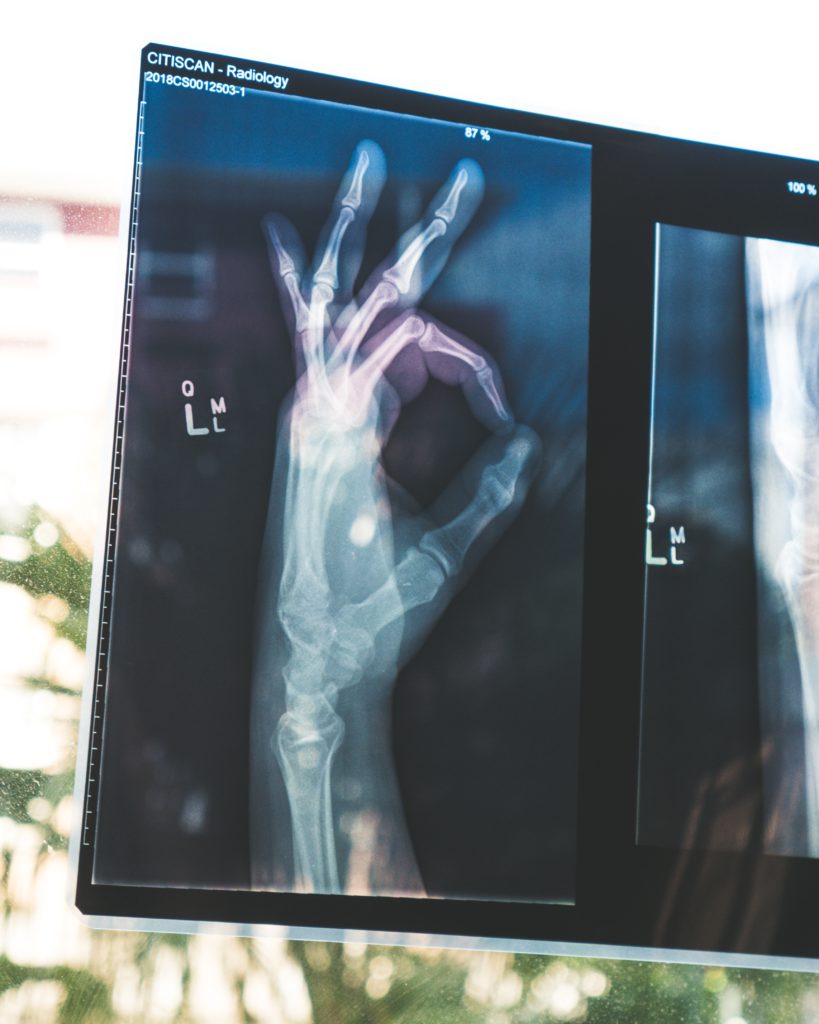Quercetin, a powerful antioxidant found in fruits and vegetables, has gained attention for its potential health benefits. In recent years, there have been discussions revolving around the effects of quercetin on joint health. While some speculate that quercetin could potentially cause joint pain, there are also studies that suggest the opposite. In this article, we will explore the research and delve into the potential effects of quercetin on joint health, helping you gain a clearer understanding of this intriguing topic. So, let’s get started and uncover what the science says about quercetin and its impact on our joints.

Overview of Quercetin
Quercetin is a naturally occurring plant compound that belongs to a group of flavonoids known as flavonols. It is widely present in various plant-based foods and beverages, such as fruits, vegetables, tea, and red wine. Quercetin possesses various health-promoting properties and has been studied extensively for its potential benefits on joint health.
What is Quercetin?
Quercetin is a powerful antioxidant that helps protect the body against oxidative stress and free radical damage. It is known for its anti-inflammatory, anti-cancer, antiviral, and immune-modulating properties. Quercetin is often used as a dietary supplement and is available in various forms, including capsules, tablets, and powders.
Sources of Quercetin
Quercetin can be found naturally in a wide range of fruits and vegetables. Some excellent sources of quercetin include apples, onions, berries (such as blueberries and cranberries), citrus fruits, grapes, cherries, broccoli, kale, spinach, and red wine. Consuming a diverse and balanced diet rich in these foods can help ensure an adequate intake of quercetin.
Mechanism of Action
Quercetin exerts its effects on joint health through various mechanisms. One key mechanism is its ability to reduce inflammation in the body. It inhibits the production of pro-inflammatory substances and helps regulate immune responses. Additionally, quercetin has been shown to protect cartilage, reduce pain and stiffness, and modulate the immune response in joints.
Benefits of Quercetin on Joint Health
Anti-inflammatory Properties
Quercetin exhibits strong anti-inflammatory effects, making it a valuable compound for maintaining joint health. Chronic inflammation can contribute to the development and progression of joint conditions, such as rheumatoid arthritis and osteoarthritis. By reducing inflammation, quercetin can help alleviate joint pain and swelling, as well as inhibit the destruction of cartilage.
Reduction of Pain and Stiffness
Joint pain and stiffness are common symptoms experienced by individuals with joint conditions. Quercetin has been shown to possess analgesic properties, helping to alleviate pain and discomfort caused by joint inflammation. Additionally, it can enhance joint flexibility and mobility, allowing for better range of motion and reduced stiffness.
Protection of Cartilage
Cartilage is the flexible tissue that covers the ends of bones in joints, providing cushioning and preventing bone-on-bone contact. Quercetin has been found to protect and preserve cartilage integrity by inhibiting the activity of enzymes that break down cartilage. This can help slow down the progression of joint degeneration and maintain joint function.
Modulation of Immune Response
An overactive immune response can contribute to joint inflammation and damage. Quercetin has immune-modulating properties, which means it can regulate immune system activity and prevent excessive inflammation. By modulating the immune response, quercetin may help reduce the severity of joint conditions and promote overall joint health.
Studies on the Effects of Quercetin on Joint Health
Clinical Trials in Humans
Several clinical trials have investigated the effects of quercetin supplementation on joint health in humans. One study involving individuals with rheumatoid arthritis found that quercetin supplementation led to a significant reduction in disease activity and improved joint function. Another study on osteoarthritic patients showed that quercetin supplementation reduced pain and improved physical function compared to a placebo.
Animal Studies
Animal studies have also provided evidence of the beneficial effects of quercetin on joint health. In a study using rats with osteoarthritis, quercetin supplementation prevented cartilage degradation and reduced joint inflammation. Another study on rabbits with rheumatoid arthritis demonstrated that quercetin reduced joint swelling, pain, and tissue damage.
In Vitro Studies
In vitro studies, which are conducted using cells or tissues in a controlled laboratory environment, have revealed further insights into the mechanisms of action of quercetin on joint health. These studies have shown that quercetin can inhibit the production of inflammatory mediators and cartilage-degrading enzymes. Quercetin has also been found to protect chondrocytes, the cells responsible for maintaining cartilage, from oxidative stress and cell death.
Dosage and Safety Considerations
Recommended Dosage
There is no established recommended daily allowance (RDA) for quercetin, as it is not considered an essential nutrient. However, typical supplemental doses range from 500 to 1000 mg per day. It is important to note that individual dosage requirements may vary based on factors such as age, overall health, and specific health conditions. It is advisable to consult with a healthcare professional to determine the appropriate dosage for your needs.
Potential Side Effects
Quercetin is generally considered safe for most individuals when taken orally in recommended doses. However, some people may experience mild side effects, such as gastrointestinal issues (nausea, diarrhea, or stomach cramps). High doses of quercetin may also interact with certain medications, such as blood thinners and antibiotics. Pregnant and breastfeeding women should consult their healthcare provider before taking quercetin supplements.

Synergistic Effects of Quercetin with Other Compounds
Combination with Glucosamine and Chondroitin
Quercetin can be combined with other joint-supporting compounds, such as glucosamine and chondroitin sulfate, to enhance their effects. Glucosamine and chondroitin are commonly used supplements for joint health, as they support cartilage repair and reduce inflammation. When combined with quercetin, these compounds may work synergistically to provide comprehensive joint support and improve overall joint function.
Interaction with Vitamin C
Quercetin has been found to enhance the absorption and bioavailability of vitamin C, another potent antioxidant with benefits for joint health. Vitamin C is essential for the synthesis of collagen, a protein that provides structural support to joints and other connective tissues. By enhancing vitamin C availability, quercetin may help support collagen production and promote the maintenance of healthy joints.
Potential Adverse Effects of Quercetin on Joint Health
Quercetin-Induced Joint Pain
While quercetin is generally well-tolerated, rare cases of quercetin-induced joint pain have been reported. In these cases, individuals experienced joint pain shortly after starting quercetin supplementation. It is important to note that this adverse effect is uncommon and typically resolves after discontinuing quercetin use. If you experience joint pain while taking quercetin, it is advisable to stop using it and consult with a healthcare professional.
Negative Impact on Joint Function
Although quercetin has shown potential benefits for joint health, there is limited evidence regarding its long-term effects on joint function. Some studies have suggested that high doses of quercetin may interfere with collagen synthesis and negatively impact joint function. However, further research is needed to better understand these potential adverse effects and determine the optimal dosage for long-term joint health.

Quercetin Supplements for Joint Health
Choosing the Right Quercetin Supplement
When choosing a quercetin supplement, it is important to ensure its quality and purity. Look for products that are third-party tested for quality and adhere to good manufacturing practices (GMP). Choosing a reputable brand that sources its ingredients from reliable suppliers can help ensure that you are getting a high-quality quercetin supplement.
Best Time to Take Quercetin
The best time to take quercetin supplements may vary depending on individual preferences and lifestyle factors. Some individuals prefer taking quercetin in the morning, while others find it more beneficial to take it in the evening. It is generally recommended to take quercetin with food to enhance its absorption.
Precautions when Taking Quercetin
If you have any pre-existing medical conditions or are taking medications, it is essential to consult with a healthcare professional before starting quercetin supplementation. They can provide personalized advice and guidance based on your specific health needs. Additionally, it is important to follow the recommended dosage and not exceed the suggested intake without medical supervision.
Natural Food Sources of Quercetin for Joint Health
Vegetables High in Quercetin
Including quercetin-rich vegetables in your diet can contribute to your overall joint health. Some vegetables that are particularly high in quercetin content include onions, kale, broccoli, spinach, and red peppers. These vegetables can be consumed raw in salads, steamed, stir-fried, or incorporated into various recipes to reap their quercetin benefits.
Fruits Rich in Quercetin
Many fruits are excellent natural sources of quercetin. Apples, berries (such as blueberries and cranberries), cherries, grapes, and citrus fruits are particularly high in quercetin content. Enjoying a variety of fruits as part of your daily diet can help increase your quercetin intake and support joint health.
Herbs and Spices Containing Quercetin
Certain herbs and spices contain significant amounts of quercetin and can be incorporated into your cooking to enhance joint health. Some examples include capers, dill, parsley, lovage, and red onions. These flavorful additions can provide an extra boost of quercetin to your meals.
Conclusion
Quercetin is a natural compound with numerous potential benefits for joint health. Its anti-inflammatory and antioxidative properties make it a valuable tool in managing joint conditions and promoting overall joint well-being. While quercetin supplementation can be beneficial, it is essential to consult with a healthcare professional, especially if you have any underlying health conditions or are taking medications. Additionally, incorporating quercetin-rich foods into your diet can help provide a natural source of this beneficial compound. Remember to prioritize a balanced and varied diet, active lifestyle, and proactive management of joint health for optimal well-being.






